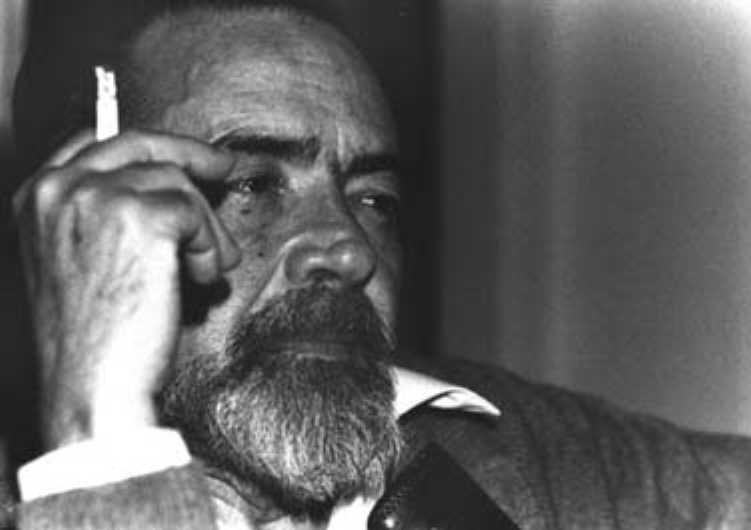4.1.2.7.6 The notebook “The Days of Your Life”, 1977, by Eliseo Diego (1920 – 1994)

In “The Days of Your Life,” from 1977, Eliseo Diego delves into the fundamental themes that had defined his poetry up to that point: death, ephemerality, and particularly the devastating power of time in its predetermination and eternal, unbounded flow. Here, the anguish and dilemmas of existence are taken to a higher level of consciousness in which internal states prevail over the piercing stimuli of reality.
The immediate experience of the surrounding world gives way to intellectualized constructions of reality, as an expression of the need to build a system to understand the world based on the exegetical insufficiency of reality. To do this, he relies less on impressions and more on memory, touched by his peculiar creative faculty.
Literary elements in this text take on a significance they hadn’t had before, in terms of their ability to generate new fictions. In this sense, Eliseo Diego attributes values of reality to the text and recreates myths, characters, and plots typical of the literary field. These texts reflect his knowledge of important authors and works. These include “A Visit to Ivan Sergeevich,” “To Fyodor Mikhailovich Dostoevsky,” and “Responso por Rubén Darío.”
It can be said that in this collection of poems, the historical theme emerges not only as knowledge correlated with specific themes but as an essential source of lyrical inquiry. This is the nature of the content of “A Little History of Cuba.” Although historical should not be identified with remote events, but rather with all those events that determined the definitive character of the nation. Appropriate to this concept is the magnificent poem “Where You Never Imagine It,” dedicated to Ernesto Che Guevara:
“Then you are definitely dead.
We will never see you again
playing with the breath of the fed up
when writing as if reluctantly: hey,
about money.
Among legends
You came briefly to our day
to then leave among legends.
You crossed in the shadows, quickly
lightning-thirsty edge,
and fear was going to thunder where you were not.
Then, it is true, the beret would be serious
and the smiling tobacco, we believed
-and you will know, if possible, how to forgive him-
that you were already left for seed
of things and years.
Today they tell us
that you are really dead, that they have you
finally where they wanted.
They are wrong
more than we imagining
that you are a torso of absolute marble
still in history, where everyone
can find you.
When you
you were never but the fire,
but the light, the air,
but American freedom
blowing where it wants, where never
You would never imagine it, Che Guevara.”
In this collection of poems, the author also maintains a conversational tone that brings it closer to immediacy despite the aforementioned dose of intellectualization. His poetic instrument thus captures collective vibrations and is enchanted by its historical moment, bearing witness to the losses but also the discoveries that have occurred in the waters of new times. Through the power of the poetic word, the author attempts to conjure the inexorable passage of time.








